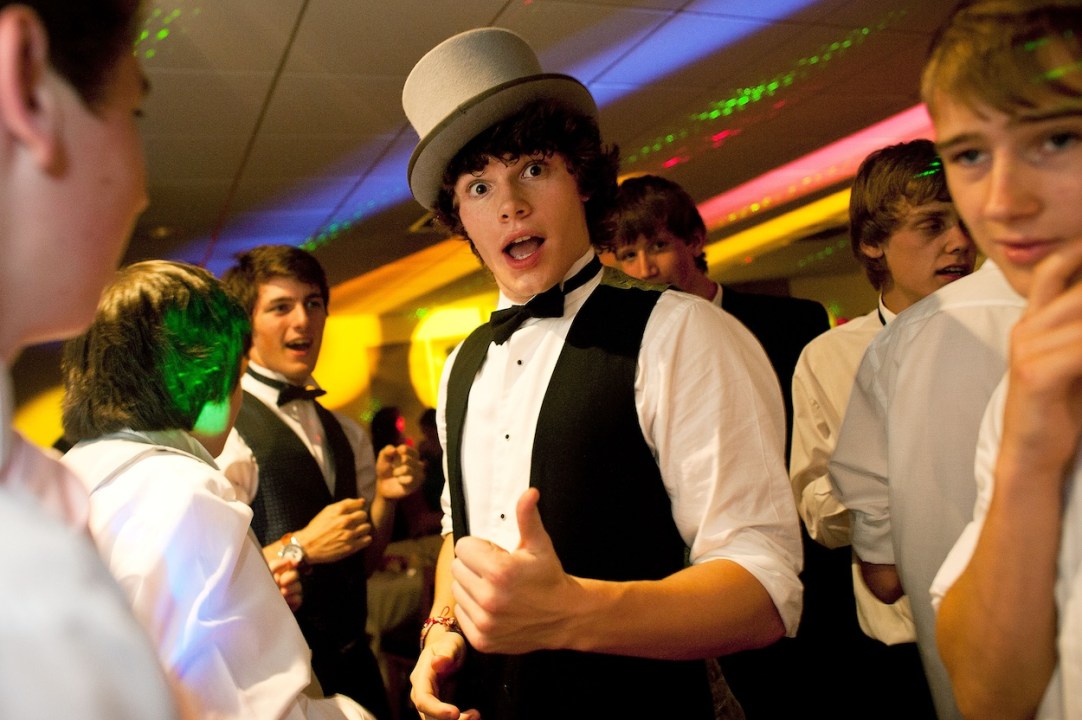Now that the autumn term is well underway at universities and freshers’ week has removed its leering, spotty face from the calendar for another year, may I talk about how ghastly it is? Impressionable young people who believe they are completely mature adults but still have another decade or so of brain remodelling to go arrive at an unfamiliar place for the first time. Once any relatives who lugged their bulging suitcases packed with stuff to make them seem grown-up have disgorged the final single sock from the family car and driven off, hiding their tears, the young person is on their own.
I remember being 19 and arriving at Edinburgh University. I took the train up from London and hauled my suitcase to the taxi line at Waverley. By good fortune, the person standing next to me in the queue was also going to the university halls, and when we enquired about each other’s planned courses, we found out that we were both going to study medicine. In the end, we shared a taxi to the halls of residence but, in the way of young people lacking confidence everywhere, I was too shy to be myself and projected an armour of faux invulnerability, revealing that I had spent a year out – and a year at school beforehand – writing for the New Musical Express. While I may have presented myself as seeming ultra-confident, secretly I could think of nothing else to say – this was before I learnt that the best conversation starter is to listen. However, I was secretly impressed at my new acquaintance’s taste in music, which suggests that even when you feel you have put on a blaggy persona, you can still pick up seeds of information from the other person.
Unbeknown to me then, this young man, John, would turn out to be one of my friends for life. Why on earth, rather than trying to impress a stranger with a faux insouciance I didn’t feel, did I not reveal any of my true personality – shy, a bibliophile (like John, as it happens), relieved to be away from a hugely dysfunctional, violently rowing family but full of trepidation about not living in London, excitement mixed with trepidation about the course?
Perhaps the reason is that when young people arrive at university, they are not really allowed to own up to doubts or diffidence. A reserved, introverted personality runs against the stereotype that students starting university have projected for decades. When I wrote for the New Musical Express, most of us writers – including those of us who were going to go, or had been, to university – scoffed at ‘wacky students’, whose often embarrassing clownish stunts seemed immature and entitled to young working-class individuals who had been earning their own living since the age of 16.
Arriving at the halls of residence is often not the immediate meeting of soulmates that an adolescent secretly longs for. Rooms have been allocated on a random basis because most people don’t know anyone else starting the same university at the same time. Therefore, you are about as likely to have something in common with the people on your corridor as you would on a bus. There was a distinct ache of the facial muscles from smiling and feigning interest at those in neighbouring rooms, whose conversation consisted mainly of asking where you had come from, what course you were doing and, rarely and with deathly dullness, what grades you achieved in Highers or A levels. Of course one didn’t do any better oneself; it’s impossible to leap into a deep and meaningful conversation with someone you’ve never met and with whom you may have nothing in common. It meant that a lot of time was spent nodding and rictus-grinning at platitudes (‘yes, London is busy! Yes, it is much quieter here!’) or making them oneself (‘gosh, so many people! I wonder how long it will take to find our way around! Lucky the rain has stopped!’).
By the time you finally close the door to your tiny room, you feel like a traitor to the literary edict you’ve held to since early teens: ‘do not use exclamation marks, they broadcast that you are trying to be funny and act as an order to others to laugh’.
Pity the poor townsfolk trying to get on with their lives and having to avoid floppy-haired Ruperts bumping into them
But none of these early encounters can compete in horror with the forced fun of freshers’ week. If you are living in a hall of residence, you will not be able to avoid the numerous invitations to ‘hilarious’ parties, all of them with a theme. Thus, you will be enjoined to rip up your bedsheet to fit in at the toga party, or pressurised to join the fancy-dress pub crawl which requires you to have an alcoholic drink in each of 12 pubs. Afterwards, the stilted chat in the junior common room about A-level results will be replaced by people telling each other how drunk they were, whether or not they vomited, and how ‘hilarious’ it was when one of the party was relieved of their belt so their trousers could be pulled down.
Of course, there is also voluntary pulling down of trousers to display buttocks: mooning is not infrequently a pastime of the inebriated drifting wavily back to their residences. Pity the poor townsfolk trying to get on with their lives and having to avoid floppy-haired Ruperts bumping into them, or approaching them to make what they believe are riotous observations.
The forced-fun vibe has the effect of making those who don’t think everything is uproariously entertaining feel isolated. Of course, what you don’t know is that the majority of the people there also don’t really think wearing a towel to a beach party with nothing underneath is immensely original and amusing, and really could do without the blaring drunk wag trying to yank the towel off.
It takes time to find your people at university, as it does in any sphere of life: school, work, love. Nothing makes a young person feel as if they don’t fit in – as if they are not good enough, not gregarious and ‘fun’ enough – as a week of simulated jollification. My message to students who have gritted their teeth or privately over-worked their tear ducts through this kind of rigmarole is to hang fast: most people will be decent and some will be on your wavelength. Go out there, be yourself and find them.








Comments